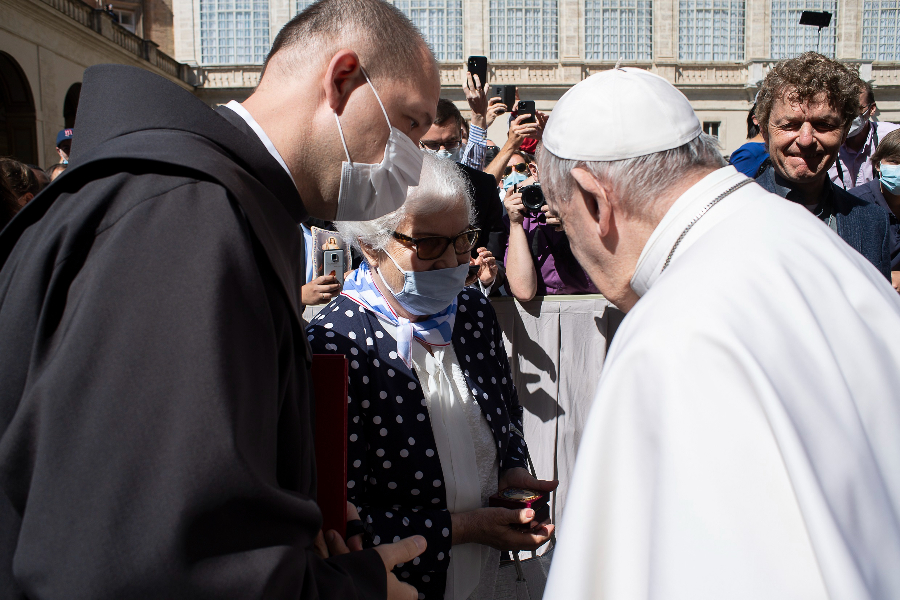Pope Francis confronted the “scandal” of prayers that seem to go unanswered during his Wednesday general audience by pointing to the hope found in the Resurrection, “when all human longings … will be fulfilled.”
“When people pray with a sincere heart, when they ask for things that correspond to the Kingdom of God, when a mother prays for her sick child, why does it sometimes seem that God does not listen?” the pope asked pilgrims gathered in Vatican City’s San Damaso Courtyard.
“To answer this question, we need to meditate calmly on the Gospels,” he said May 26.
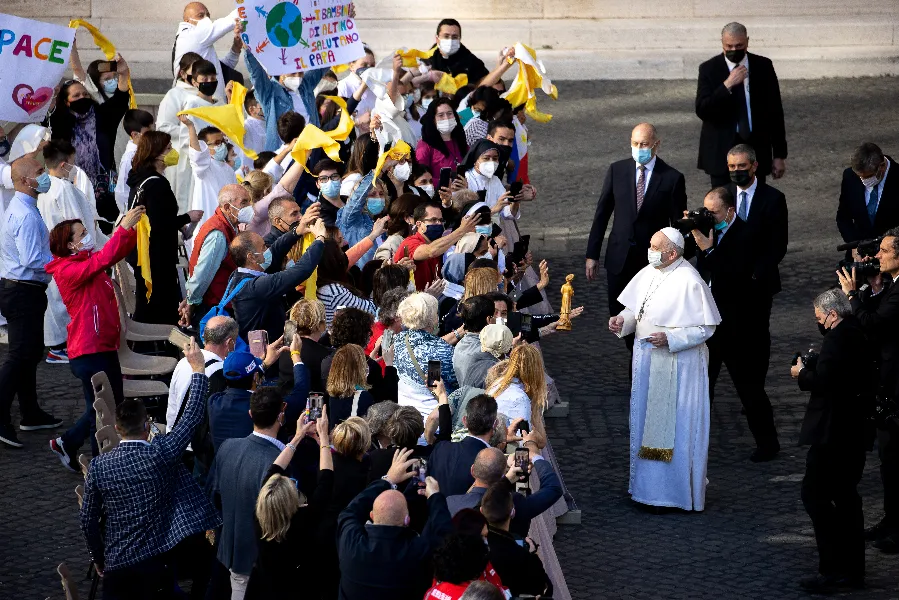
The pope stressed that “God’s time is not our time” and said that the Gospel accounts of Jesus’ life are full of requests for prayer and healing.
“We see that at times Jesus’ response is immediate, whereas in some other cases it is delayed and it seems that God does not answer,” he said.
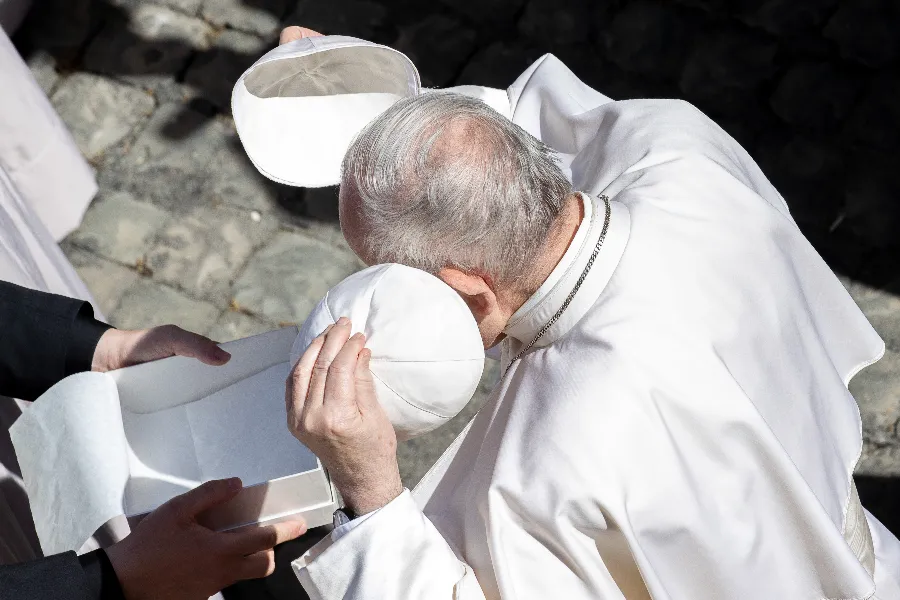
“Think of the Canaanite woman who begs Jesus for her daughter: this woman has to insist for a long time to be heard … Or think of the paralytic brought by his four friends: Jesus initially forgives his sins and only later heals his body.”
Pope Francis highlighted the Gospel of Mark’s account of a father, Jairus, who asked Jesus to heal his sick daughter who was about to die.
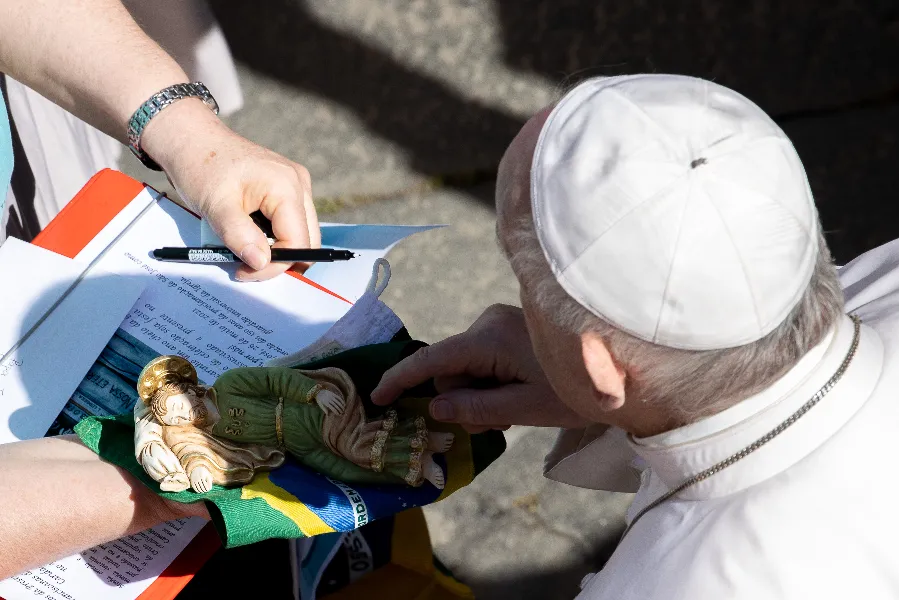
As Jesus was on his way to Jairus’ house, the father received word that his daughter had already died.
Pope Francis said: “It seems to be the end, but instead Jesus says to the father: ‘Do not be afraid, just have faith.’”
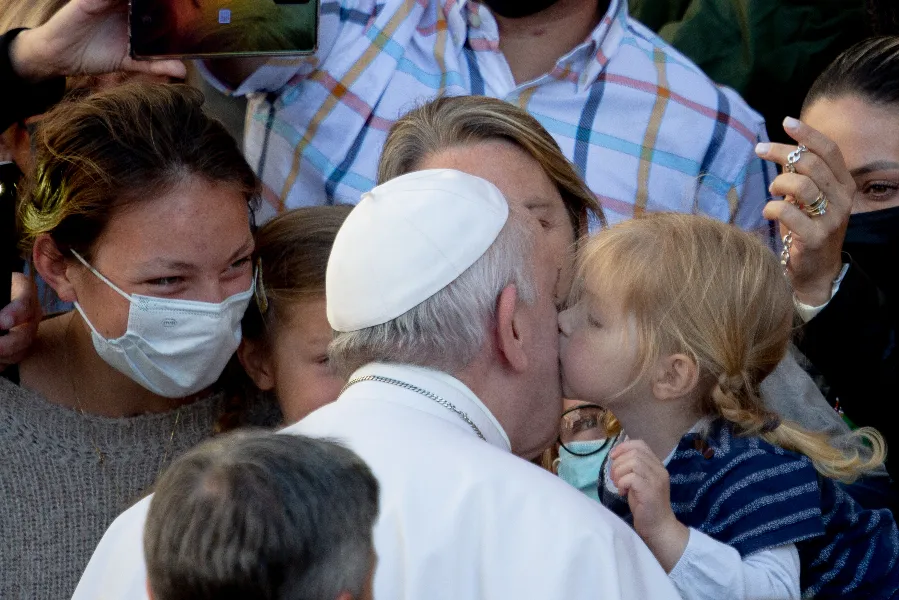
“And indeed, Jesus will awaken that child from the sleep of death. But for a time, Jairus had to walk in the dark, with only the flame of faith. Ask for this grace, to have faith,” he said.
The pope explained that “prayer is not a magic wand,” but “a dialogue with God.”
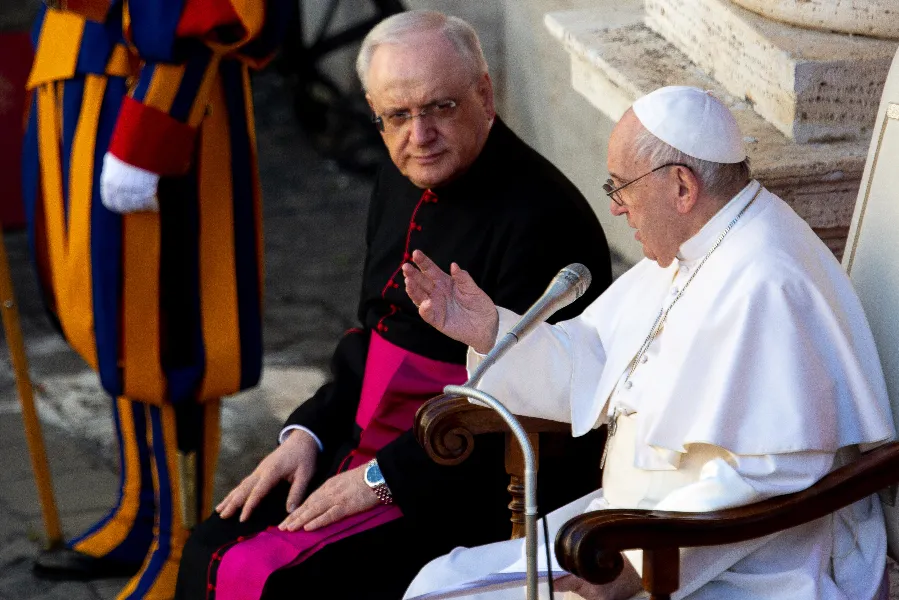
“When we pray, we need to be humble,” he said. “This is the first attitude when going to pray, just as there is the habit in many places of going to pray in church: women who wear a veil or take holy water to start praying, in this way we must tell ourselves, before praying … that God will give me what it is right to give. He knows.”
“Jesus had great wisdom by putting the ‘Our Father’ on our lips … Better to leave it to Him: ‘Hallowed be your name, your kingdom come, your will be done,’” he advised.
The pope said that after Jesus prayed in the Garden of Gethsemane, “Father, if it is possible, let this cup pass from me,” it might appear that God did not listen.
“The Son must drink fully from the chalice of the Passion,” Francis said. “But Holy Saturday is not the final chapter, because on the third day, Sunday, there is the Resurrection.”
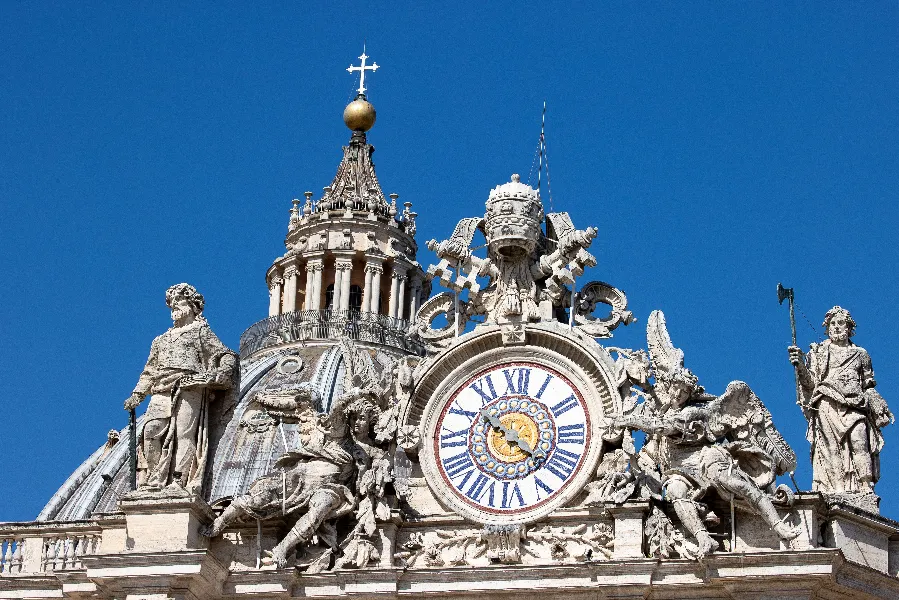
“Evil is never the lord of the last day. God is the Lord of the last day … the day when all human longings for salvation will be fulfilled,” he explained.
“We learn this humble patience to wait for the grace of the Lord, to wait for the last day. Many times, the penultimate day is very bad, because human suffering is bad. But the Lord is there and on the last day He solves everything,” he said.
The address was the 35th reflection in the pope’s cycle of catechesis on prayer, which he launched in May 2020 and resumed in October following nine addresses on healing the world after the pandemic.
At the end of the audience, the pope met Holocaust survivor Lidia Maksymowicz, who showed the pope her Auschwitz-Birkenau concentration camp tattoo, which the pope bowed to kiss.
Pope Francis also recalled that May 26 is the feast of St. Philip Neri, who is also called “the saint of joy.”
“May consoling joy, a gift from the Lord, accompany and enrich the journey of each of you,” Pope Francis said.

